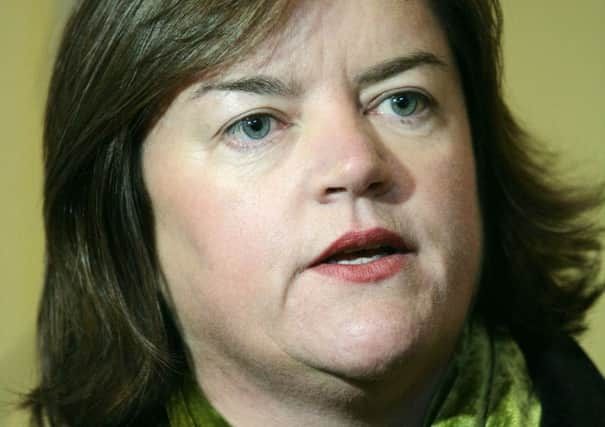Jayne Dowle: The woman who spoke her mind... and broke the mould


Her masterful handling of the report into Rotherham Council is proof enough. She has delved into a shocking culture of cover-ups, denial, sexism and bullying and come up with a series of recommendations which have shaken the borough to its core.
Ms Casey has pulled no punches: the entire Cabinet has resigned and the council will now come under central government control until it is deemed fit to run itself.
Advertisement
Hide AdAdvertisement
Hide AdPutting Casey in charge of sorting out all this out was a stroke of genius. Who else could have done it?
It is customary in such reports and public enquiries to pull some former judge or pensioned-off politician out of retirement. Yet the situation in Rotherham was like no other. A toxic set of circumstances – sexual exploitation, racism, political correctness and social deprivation - which demanded a certain level of experience and understanding.
Casey was uniquely qualified for the job. Her track record went before her: this senior civil servant has already held a string of influential positions, including Victims Commissioner, director of the Government’s Troubled Families Unit and head of the Respect task-force, which attempted to tackle anti-social behaviour. Her sterling work in South Yorkshire will certainly make an important contribution to her CV.
However, we should look beyond the job she has done and consider why she has done it so effectively. It is here that she proves herself as a role model and let us hope, an inspiration to others. By breaking the culture of secrecy in Rotherham, she has broken the mould. Those who wish to make a difference to the world we live in should take note of how she has done it.
Advertisement
Hide AdAdvertisement
Hide AdShe is young, for a start. At 49, she is far from the crusty old stereotype of the great and the good that we usually see before us heading up such reports. And obviously, she is a woman.
A woman who doesn’t feel the need to justify her position by endless attention-seeking publicity opportunities. Certain female MPs should take note.
This is not to say that Britain does not already have a good track record in appointing women to roles of high responsibility in such enquiries. It’s just that usually, as well as being female, they also usually happen to be retired High Court Judges or suchlike. Take, for example, Dame Elizabeth Butler-Sloss, who resigned from a child abuse enquiry last year because her late brother had been Attorney General in the 1980s. I can’t think of another woman from such a relatively humble background who has been appointed to such a position of responsibility.
Casey grew up in Portsmouth and one of her first jobs was working in the local DHSS office dealing with benefit payments for homeless people. We hear so much about politicians who have little or no understanding of real life. And although she is not an elected member of Parliament, it is fair to say she has the ear of those who run the country. Not for her some fancy university, followed by a spell doing “research” at Harvard or wherever. Her life experience was gained right at the cutting edge. Nothing can replace that. And such first-hand knowledge and understanding of how society really operates has qualified her beyond measure for the work she does.
Advertisement
Hide AdAdvertisement
Hide AdWhen she was appointed “homelessness czar” by Prime Minister Tony Blair in 1999, critics were quick to jump on her role as an example of cronyism. Yet her string of government appointments since then have proved that whatever her own personal political beliefs, her job is not to suck up to ministers, but to seek out truth and justice whoever happens to be in No 10. In this, she stands out. There should be more individuals like this with the strength of character to rise above political infighting and do the job they are paid handsomely to do.
Ah yes, strength of character. Others might call it “outspoken to a fault”. Casey is known for speaking her mind, and she doesn’t always choose her words appropriately. She was lambasted for her comments during an after-dinner speech in 2005, when she suggested that ministers would perform better if they were drunk - “doing things sober is no way to get things done”.
She took the Government to task over its obsession with not acting until all the facts are presented in bound copy – “if No 10 says bloody evidence-based policy to me one more time I’ll deck them one and probably get unemployed”. And she accused social workers of being too “nice” to colleagues from other agencies, putting vulnerable people at risk for fear of upsetting the status quo. The profession was up in arms, but as Rotherham proves, we know where being “nice” gets you – a town riven with a reputation for allowing sexual abuse to fester and proliferate.
In all this, she won’t be everyone’s ideal candidate for a champion of social justice. She will continue to face her detractors, and those who think she has risen too far, too fast. I wish her luck. And I wish there were more people like her – Britain would be all the better.